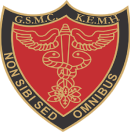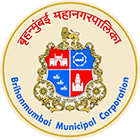

KING EDWARD MEMORIAL HOSPITAL
SETH GORDHANDAS SUNDERDAS MEDICAL COLLEGE
बृहन्मुंबई महानगरपालिका रुग्णालय



KING EDWARD MEMORIAL HOSPITAL
SETH GORDHANDAS SUNDERDAS MEDICAL COLLEGE
बृहन्मुंबई महानगरपालिका रुग्णालय


Transfusion Medicine is a multidisciplinary area concerned with use of blood and blood components in the treatment of human diseases. Blood transfusion constitutes an important part of various treatment protocols. It is a lifesaving treatment in cases of massive blood loss, patients undergoing major surgeries, aplastic anemia, and leukemia undergoing chemotherapy and also in genetic conditions like thalassaemia major which are transfusion dependent. It is one of the most important emergency service departments which also plays important role in disaster management.
The Department of Transfusion Medicine ( originally The Bombay Municipal Blood Centre – Shantilal Mathuradas Blood Centre) of Seth G.S. Medical College and K.E.M. Hospital came into existence on 1st January 2009, ( First Medical College to start Department of Transfusion Medicine in the State, among all the Medical Colleges under DMER, Maharashtra ) with the main objective of starting Postgraduate course in Transfusion Medicine, and also providing quality medical care to patients by dispensing safe blood and blood components , performing therapeutic procedures, advanced apheresis procedures , keeping pace with the recent developments and advances in Transfusion Medicine and discharging its responsibility to voluntary blood donors. The postgraduate course (M.D. Transfusion Medicine) started in the year 2010. This is the First Medical College among all the State Government and Corporation Medical Colleges in Maharashtra to start MD Transfusion Medicine Course with an annual intake of 2 students per year since July 2010. It is MCI/NMC Recognized Course. Dr Jayashree Sharma, First Professor and Head, Dept of Transfusion Medicine, (since 2008) among all the Municipal Corporation and Govt Medical colleges, took the initiative in starting the MD course in Transfusion Medicine, which is the first in Maharashtra. Our blood centre is the largest blood centre in Mumbai and one of the largest blood centres in South East Asia. More than 36,000 units of blood are collected annually and separated into various blood components (See below)
Sr. No. |
Name |
Designation |
Qualification |
Email ID |
Teaching Experience |
Photo |
1 |
Dr. Jayashree Sharma |
Professor and Head |
M.D. (Pathology), D.T.M. |
jayashreesharma@kem.edu |
33 years: UG |
|
2 |
Dr. Charusmita Modi |
Associate Professor |
M.D. (Pathology) |
charusmitamodi@ |
30 years : UG |
|
3 |
Dr. Swarupa Bhagwat |
Associate Professor (Ad hoc) |
M.D. (Pathology), D.P.B. |
swarupabhagwat@ |
18 years:UG 9 years :PG |
|
4 |
Dr. Parag Fulzele |
Assistant Professor |
M.D. (Immunohaematology and Blood Transfusion ) |
paragfulzele17@gmail.com |
8 years UG |
|
5 |
Dr. Darshan Adulkar |
Assistant Professor |
(Immunohaematology and Blood Transfusion ) |
darshanadulkar@kem.edu |
7 years UG |
|
Material for information, education and counselling of blood donors is available in the department. Additionally, the counsellors and medical social workers motivate people for blood donation by taking lectures before blood donation camps as well as in the blood bank.
If you are between 18 and 65 years of age, weighing more than 45 kg and are healthy, you can donate blood. For platelet donation, the minimum weight should be 55 kg. You should have eaten a non-oily healthy breakfast/ meal within 4 hours before coming for blood donation. Additionally, the doctors in the blood bank will explain to you the benefits of as well as the eligibility criteria for blood donation
Courses offered:
M.D. (Immunohaematology and Blood Transfusion) by MUHS, approved by NMC
One of the prime objectives of the department is to provide didactic and practical training in all aspects of transfusion and transplantation technology so as to create well-trained manpower in the field who could operate a well-organized blood transfusion services in various medical colleges and hospitals in the country.
M.D. (Immunohaematology and Blood Transfusion) academic program provides training in all aspects of transfusion medicine including blood center operation, patient transfusion service, donor and therapeutic apheresis, thalassaemia and haemophilia management, viral screening and immunohematology. The students receive extensive training in running a large hospital- based transfusion service (presently managing transfusion services of 2200 bedded K.E.M. Hospital)
Student activities: Students are posted in sections in the blood bank like blood and apheresis donation room, TTI laboratory, blood component separation, immunohaematology, quality control as well as in blood donation camps by rotation.
As allied postings, the M.D. (Immunohaematology and Blood Transfusion ) students are also posted in clinical haematology, anaesthesiology, microbiology, pathology, National Institute of Immunohaematology (NIIH, ICMR), and ACTREC (A centre of Tata Hospital)
Teaching schedule: Latest teaching schedule from January 2023 till date (August 2023) is attached herewith
Other training activities: The department is also involved in teaching the M.B.B.S. students, students pursuing postgraduation in other subjects, DMLT, BPMT, nursing and various trainees and observers from different institutions.
About 15-20 blood donation camps are organized per month with the support of camp organizers e.g. Corporate companies, Social organizations, colleges, government offices, banks etc.
Phone numbers: 022-24135189 (Direct number)
022-24107507 (Blood issue counter)
Email: bloodbankkem@gmail.com